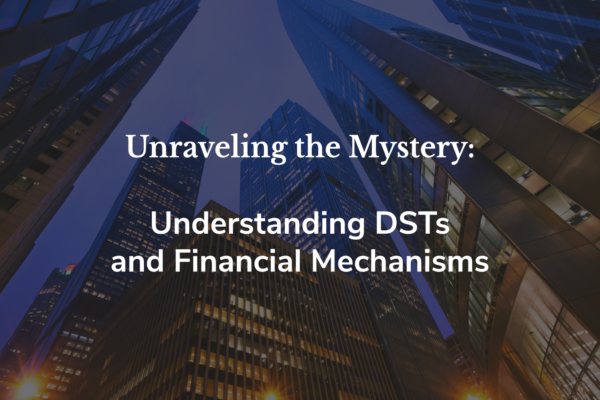Have you ever felt confused about Deferred Sales Trusts® compared to the Delaware Statutory Trust, Charitable Remainder Trust, and/or Opportunity Zones? You’re not alone! In our webinar we break down the intricacies of DSTs and guide you through the differences between the other financial mechanisms, Delaware Statutory Trust, Charitable Remainder Trust, and Opportunity Zones.
Blog
Deferred Sales Trust vs Charitable Remainder Trust
The Deferred Sales Trust™ (DST) and a Charitable Remainder Trust (CRT) offer distinct advantages in managing assets and tax implications, catering to different financial objectives.
Webinar Replay: Understanding DSTs and Financial Mechanisms
Have you ever felt confused about Deferred Sales Trusts® compared to the Delaware Statutory Trust, Charitable Remainder Trust, and/or Opportunity Zones? You’re not alone! In our webinar we break down the intricacies of DSTs and guide you through the differences between the other financial mechanisms, Delaware Statutory Trust, Charitable Remainder Trust, and Opportunity Zones.
Webinar Replay: Elevate Profitability Plus Event Collaboration Opportunities
Greg Reese, shares his expertise about how the DST strategy can help you close more deals. Explore the advantages of having Greg Reese as a guest speaker or attend your company or event, and how his insights can elevate profitability and awareness in your marketplace.
Webinar Replay: Closing the Deal – How to Present the Deferred Sales Trust to Clients
Learn how business brokers and our greater affiliates can effectively present the Deferred Sales Trust to their clients.





